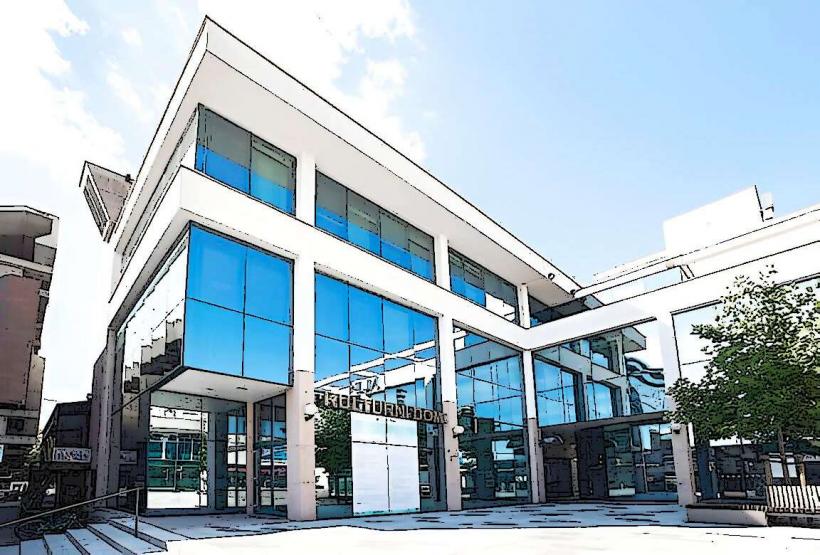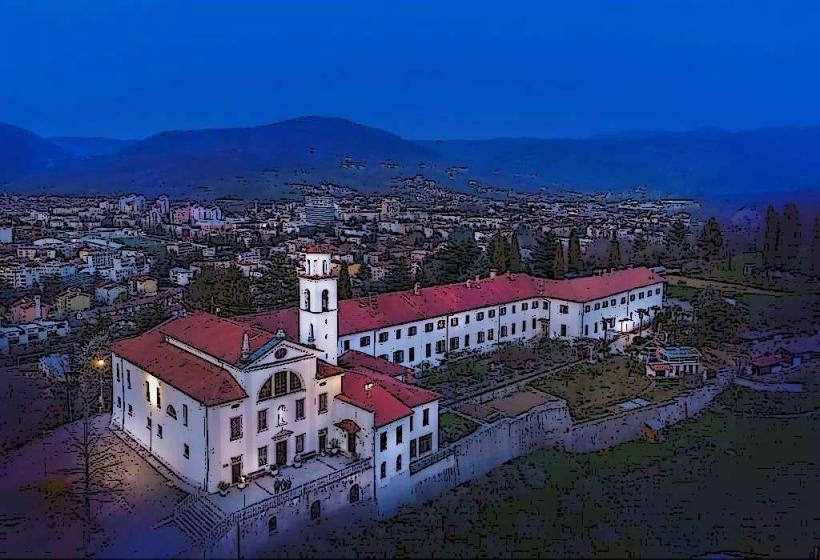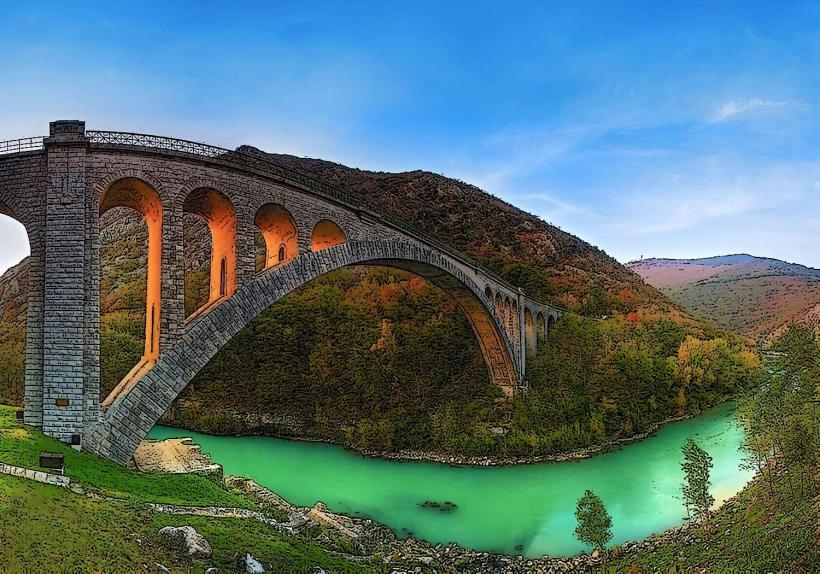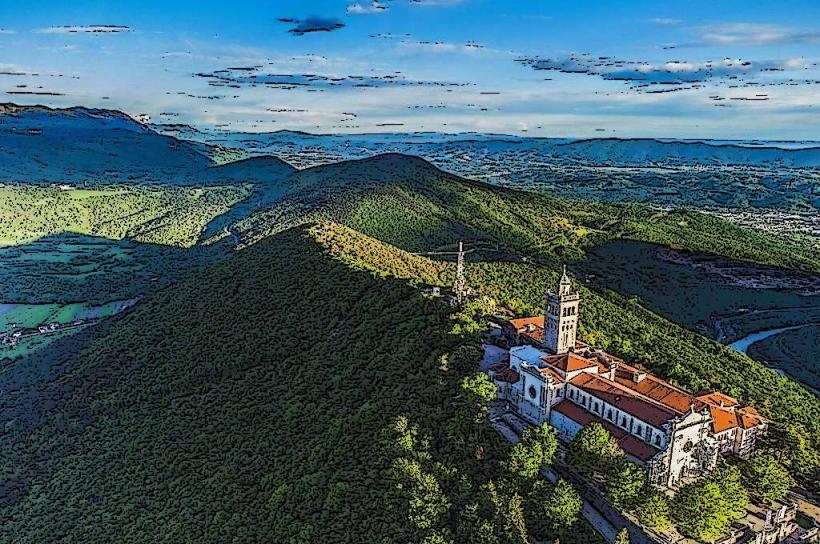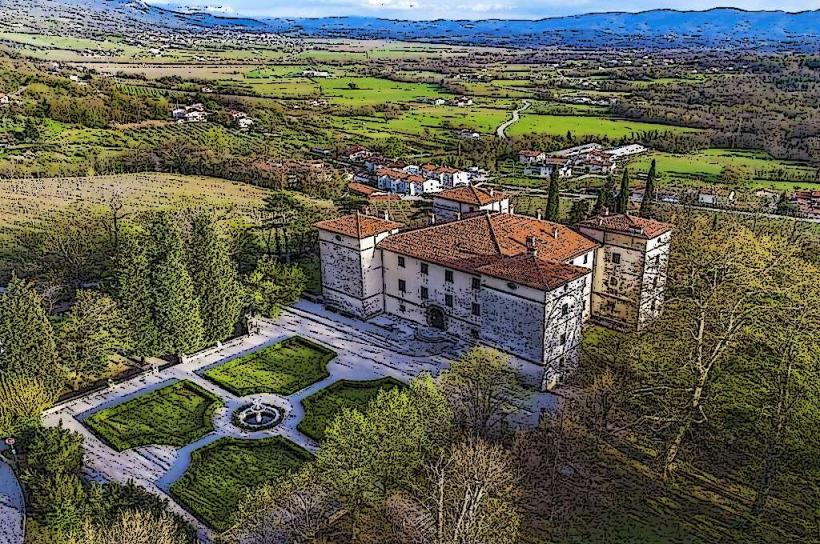Information
City: Nova GoricaCountry: Slovenia
Continent: Europe
Nova Gorica, Slovenia, Europe
Nova Gorica is the administrative center of the Goriška region in western Slovenia and serves as a key gateway between the Slavic and Romance worlds. It is situated on the border with Italy, directly adjacent to the Italian city of Gorizia, in the lower Vipava Valley.
Historical Timeline
Nova Gorica was founded in 1948 following the Paris Peace Treaty of 1947, which assigned the historic city of Gorizia to Italy and left the Yugoslav side without a regional urban center. The city's primary era of governance began under the Socialist Federal Republic of Yugoslavia, designed as a "model socialist city" with a modernist, garden-city layout. The most significant political reconstruction occurred in 2004 when Slovenia joined the European Union, leading to the removal of physical border barriers. The primary event that shaped the current urban form was the 1947 border demarcation, necessitating the rapid construction of an entirely new city on former meadows and fields.
Demographics & Population
The municipality has a total population of approximately 32,013 residents. The primary demographics are ethnic Slovenes, followed by smaller communities of Italians and residents from other former Yugoslav republics. The median age of the population is 46.1 years.
Urban Layout & Key Districts
The city is organized on a modernist grid with wide boulevards and extensive green spaces, contrasting with the medieval density of neighboring Gorizia. The City Center is the primary commercial hub located around the Bevkov Trg square. Solkan is a historic district to the north, predating the new city, known for its proximity to the Soča River. Rožna Dolina is a residential and transit-focused district located to the south, near the former primary border crossing.
Top City Landmarks
Kostanjevica Monastery (tomb of the last French Bourbons)
Solkan Bridge (the world's longest stone-arch railway bridge)
Europe Square (Trg Evrope/Piazza Transalpina, shared with Italy)
Sveta Gora (Holy Mountain pilgrimage site)
Kromberk Castle (Renaissance fortress housing the Goriški Museum)
Transportation Network
Navigation within Nova Gorica is manageable on foot or by bicycle due to the flat terrain and wide sidewalks. Local bus services (Arriva) provide connectivity within the city and to neighboring Šempeter pri Gorici. A unique cross-border bus line connects Nova Gorica with Gorizia (Italy). There are no metro or tram systems. Ride-sharing apps like Uber do not operate; local taxi services are available and typically use white or silver vehicles. Traffic density is low to moderate, with occasional congestion at the main cross-border transit points.
Safety & "Red Zones"
Nova Gorica is considered very safe with a low violent crime rate. There are no specific "red zones" or neighborhoods to avoid. Visitors should exercise standard caution in and around the large casinos (Perla and Park) at night. Scams are uncommon, though travelers should be aware of standard pickpocketing risks in crowded festival areas during the European Capital of Culture events.
Digital & Financial Infrastructure
Average internet speeds are approximately 100 Mbps. Primary mobile carriers are Telekom Slovenije, A1, and Telemach. Card acceptance is high in most establishments, including restaurants and larger shops. ATMs are widely available in the city center and near major shopping centers (Supernova).
Climate & Air Quality
Temperatures range from 0°C to 10°C in January and 18°C to 30°C in July. The region is known for the Burja (Bora), a strong, cold northeasterly wind that occurs primarily in winter. Air quality is generally high, though the humid sub-Mediterranean climate can lead to localized summer thunderstorms.
Culture & Social Norms
Tipping is not mandatory; rounding up or leaving 10% for exceptional service is standard. Greetings are typically a firm handshake. Dress codes are casual, but formal attire is common in the city's high-end casinos and fine-dining restaurants. Smoking is prohibited in all indoor public spaces. Alcohol is widely available, and the region is deeply rooted in viticulture (Vipava Valley wines).
Accommodation Zones
Stay in the City Center (near Bevkov Trg) for immediate access to casinos, dining, and the cross-border walking path. Stay in Solkan for a quieter experience near the Soča River and outdoor recreation activities.
Local Cost Index
1 Espresso: €1.60 ($1.75)
1 Standard Lunch: €14.00 ($15.40)
1 Bus Ticket: €0.80 - €1.70 ($0.88 - $1.87)
Nearby Day Trips
Goriška Brda (Wine region): 15 km
Štanjel (Medieval karst village): 27 km
Postojna Cave: 60 km
Trieste, Italy: 50 km
Facts & Legends
Nova Gorica contains the only cemetery in Europe, the Miren cemetery, that was famously split by the Iron Curtain; for years, the border fence ran directly through the graves, separating families even in death. Additionally, the city is known as the "City of Roses," a symbol reflected in its coat of arms and the extensive Bourbon rose gardens at Kostanjevica Monastery.

